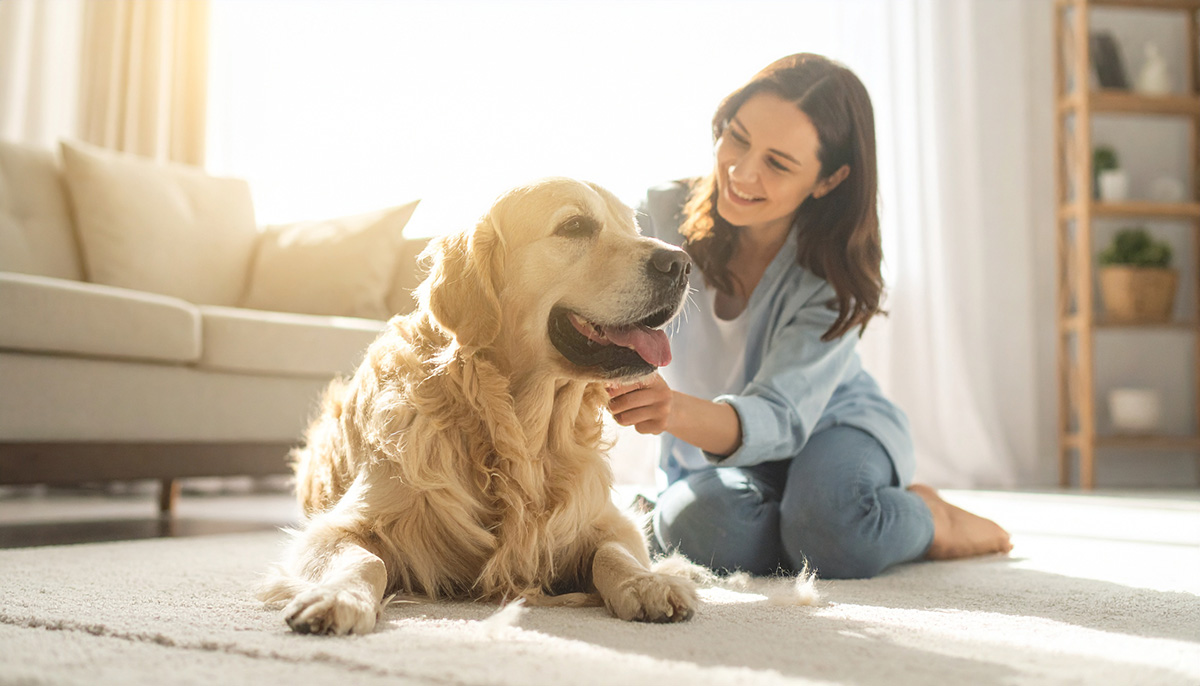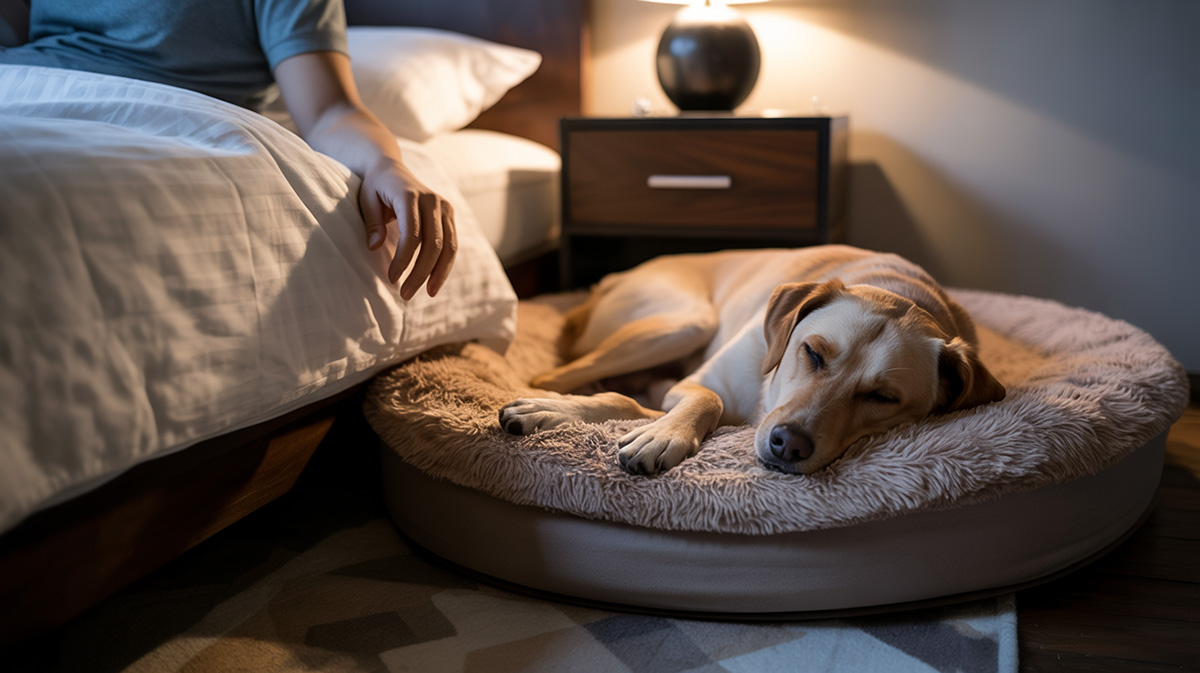Calming Chews for Dogs
Is your furry friend a bundle of nerves during thunderstorms,Calming Chews for Dogs , fireworks, or when you leave the house? The sight of a trembling, panting, or destructive dog can be heart-wrenching. As pet parents, we want nothing more than to ease their anxiety and bring them comfort. In recent years, the market has been flooded with a solution that promises just that: calming chews for dogs.
But do they work? Or are they just expensive, cleverly marketed treats? The truth is, some calming chews are remarkably effective, while others fall flat. The difference lies in the ingredients, the formulation, and understanding your dog’s specific needs.
This ultimate guide will cut through the noise. We’ll explore the science behind calming ingredients, review the top-performing brands that have proven their worth, and provide expert advice on how to use them safely and effectively. Your journey to a more peaceful life for you and your dog starts here.
Understanding Dog Anxiety: The Root of the Problem Calming Chews for Dogs
Before we dive into solutions, it’s crucial to understand what we’re dealing with. Dog anxiety isn’t a single issue; it manifests in several common forms:
Separation Anxiety: This is one of the most common and distressing forms. Dogs with separation anxiety become intensely stressed when left alone, leading to destructive chewing, incessant barking or howling, house soiling, and attempts to escape.
Noise Phobia: Thunderstorms, fireworks, construction noises, and even the vacuum cleaner can trigger intense fear in some dogs. Symptoms include shaking, hiding, drooling, and seeking constant comfort.
Travel Anxiety: Many dogs get anxious in the car, exhibiting signs like whining, panting, drooling, or even vomiting.
Generalized Anxiety: Some dogs are just naturally more nervous or “high-strung,” showing a constant low level of anxiety and reactivity to everyday stimuli.
Social Anxiety: This can be fear of other dogs or unfamiliar people, leading to aggression, cowering, or lunging.
Recognizing the signs—which can also include loss of appetite, pacing, and tucked tails—is the first step toward helping them.
How Calming Chews Are Supposed to Work: The Science of Serenity
Calming chews are not sedatives or prescription medications. Instead, they are functional treats or supplements that use a blend of natural ingredients to support the nervous system and promote a sense of calm. They primarily work in a few key ways:
Supporting Neurotransmitter Function: Ingredients like L-Theanine (from green tea) and L-Tryptophan (an amino acid) are precursors to serotonin and dopamine, the “feel-good” neurotransmitters in the brain. By increasing the availability of these compounds, calming chews can help regulate mood and reduce stress.
Providing Adaptogens: Adaptogens like Ashwagandha and Rhodiola Rosea are herbs that help the body adapt to and resist physical and mental stressors. They work by modulating the body’s stress response system (the HPA axis).
Delivering Calming Minerals: Magnesium is a crucial mineral that plays a role in nerve function and muscle relaxation. A deficiency can contribute to anxiety, and supplementation can have a calming effect.
Using Pheromone Analogues: Some advanced chews include a Pheromone Analog that mimics the appeasing pheromones released by a mother dog to comfort her puppies. This signals safety and security to the dog.
The best calming chews use a synergistic blend of these ingredients to target anxiety from multiple angles.
Key Ingredients to Look For in Effective Calming Chews
When you’re scanning the label, here’s what you should be looking for. These are the powerhouse ingredients backed by both traditional use and modern science.
1. L-Theanine
This is arguably the MVP of natural calming ingredients. Derived from green tea leaves, L-Theanine promotes relaxation without causing drowsiness. It works by increasing alpha brain waves, which are associated with a state of “wakeful relaxation,” and by influencing levels of GABA, serotonin, and dopamine. Look for Suntheanine®, a patented, pure form that is clinically proven for its calming effects.
2. Melatonin
A hormone naturally produced by the body to regulate sleep-wake cycles, melatonin is excellent for situational anxiety that occurs at predictable times (like thunderstorms at night or long car rides). It helps induce drowsiness and calmness.
3. Chamomile
A time-tested herb, Chamomile contains apigenin, an antioxidant that binds to receptors in the brain, helping to reduce anxiety and initiate sleep. It’s a gentle, soothing ingredient often found in “bedtime” blends.
4. Valerian Root
Valerian is a potent herb known for its sedative properties. It is particularly useful for severe anxiety or hyperactivity. It increases the amount of GABA (gamma-aminobutyric acid) in the brain, a neurotransmitter that calms nerve activity.
5. Hemp/CBD (Cannabidiol)
CBD-cannabidiol is non-psychoactive compound derived from the hemp plants. It interacts with the body’s endocannabinoid system, which helps regulate mood, sleep, and stress. High-quality CBD chews can be incredibly effective for all types of anxiety, from generalized to noise phobia. Crucially, ensure any CBD product has a Certificate of Analysis (COA) from a third-party lab verifying its potency and purity (and confirming it contains no THC).
6. Thiamine (Vitamin B1)
Thiamine is essential for healthy brain function. During periods of stress, the body’s reserves of B vitamins can be depleted. Supplementing with Thiamine can help support a healthy stress response.
7. Ginger
While not a direct calming agent, ginger is fantastic for soothing the stomach. Anxiety often manifests as gastrointestinal upset (nausea, diarrhea). Including ginger can help manage this physical symptom of stress, especially for travel anxiety.
8. Colostrum
A newer but promising ingredient, bovine colostrum is rich in proline-rich polypeptides (PRPs) which can help modulate the immune system and have been shown to have an anti-anxiety effect.
Ingredients to Be Cautious Of: Avoid chews with excessive artificial colors, flavors, or preservatives. The primary ingredients should be the active calming components, not fillers like corn, wheat, or soy.

Top-Rated Calming Chews That Actually Work: Brand Reviews
Based on veterinarian recommendations, customer testimonials, and ingredient analysis, here are some of the most trusted and effective brands on the market.
1. VetriScience Composure Pro
Best For, Situational & Behavioral Anxiety
Key Ingredients: Colostrum Complex (MicroLactin®), L-Theanine, Thiamine.
Why It Works: VetriScience is a vet-recommended brand for a reason. Composure Pro is a triple-action formula that is clinically tested. The colostrum complex is a key differentiator, shown in studies to reduce anxiety signs in 90% of dogs within 30 minutes, with effects lasting up to 4 hours. It’s excellent for vet visits, thunderstorms, fireworks, and grooming. It’s not a sedative, so your dog stays alert but calm.
2. Zesty Paws Calming Bites
Best For Everyday & Travel Anxiety
Key Ingredients: Suntheanine® L-Theanine, Organic Ginger, Valerian Root, Chamomile.
Why It Works: Zesty Pants is a consumer-favorite brand known for its high-quality, transparent formulas. Their Calming Bites leverage the power of Suntheanine® for fast-acting relief and include a blend of other calming herbs and ginger for stomach support. They are a great all-around option for daily stress or for specific events like car rides.
3. Penguin CBD Dog Chews
Best For Generalized & Severe Anxiety
Key Ingredients: Broad-Spectrum CBD Extract, L-Theanine, Chamomile, Passionflower, Ginger.
Why It Works: For dogs with more pronounced anxiety, CBD can be a game-changer. Penguin offers a high-quality, THC-free, broad-spectrum CBD oil infused into a tasty chew. The addition of other calming ingredients creates a powerful synergistic effect. They provide easy-to-follow dosing based on your dog’s weight and have all their lab results readily available online.
4. NaturVet Quiet Moments Calming Aid
Best For, Moderate Anxiety & Bedtime
Key Ingredients: Melatonin, L-Tryptophan, Ginger, Thiamine.
Why It Works: This is a fantastic and affordable option for dogs that need help winding down, especially at night. The inclusion of Melatonin makes it ideal for promoting restful sleep, while L-Tryptophan supports serotonin production. It’s a gentle yet effective formula for dogs with mild to moderate noise phobia or separation anxiety.
5. Purina Pro Plan Calming Care
Best For, Long-Term, Daily Support for Generalized Anxiety
Key Ingredients: Proprietary Probiotic Strain (Bifidobacterium longum BL999).
Why It Works: This is a different approach. Calming Care is a daily probiotic supplement powder that you sprinkle on food. A landmark study showed that 82% of dogs receiving this specific strain showed reduced anxious behaviors after six weeks. It’s not for immediate situations but is a brilliant long-term strategy to build a more resilient nervous system. Think of it as a foundational supplement.
How to Choose the Right Calming Chew for Your Dog
With so many options, selecting the right one can be daunting. Follow this decision matrix:
- For Sudden, Predictable Events (Fireworks, Thunderstorms, Vet Visits): Fast-acting chews with L-Theanine (like VetriScience Composure Pro) or a chew with Melatonin (like NaturVet Quiet Moments) if the event is in the evening.
- For Daily, Generalized Anxiety or Separation Anxiety:A daily supplement like Purina Pro Plan Calming Care for foundational support, potentially paired with a faster-acting chew for particularly stressful moments (like when you leave the house).
- For Severe Anxiety or Phobias:High-quality CBD chews (like Penguin CBD) or consult your veterinarian for prescription options.
- For Travel or Motion Sickness: Chews that include Ginger alongside calming ingredients (like Zesty Paws Calming Bites).
- For Senior Dogs with Cognitive Decline & Anxiety: Look for chews that also include supplements for cognitive support, like Senilife, or discuss options with your vet, as anxiety in seniors can be linked to Canine Cognitive Dysfunction.
Safety First: Important Precautions and Vet Consultation
The most important step before starting any new supplement is to talk to your veterinarian.
Rule Out Medical Issues: Sometimes, behaviors that look like anxiety can be caused by underlying pain (e.g., arthritis, dental disease) or other medical conditions. Your vet can ensure you’re treating the right problem.
Check for Drug Interactions: If your dog is on any other medications, especially sedatives or NSAIDs, your vet needs to approve the use of calming chews to avoid adverse interactions.
Determine the Correct Dosage: Always follow the manufacturer’s dosing instructions based on your dog’s weight. Your vet can provide guidance if a standard dose seems too high or low for your dog’s specific needs.
Monitor for Side Effects: While generally very safe, some dogs might experience mild side effects like drowsiness (especially with Melatonin or Valerian), an upset stomach, or, rarely, an allergic reaction. Start with a lower dose to see how your dog tolerates it.
Quality Matters: Stick with reputable brands that use high-quality, human-grade ingredients and have their products tested by third-party labs. Avoid cheap, imported chews with vague ingredient lists.
Beyond Chews: A Holistic Approach to Canine Calm
Calming chews are a powerful tool, but they are not a magic bullet. For the best results, they should be part of a comprehensive anxiety-management plan.
Behavioral Training: Techniques like desensitization and counter-conditioning are gold standards for treating phobias. This involves gradually exposing your dog to the fear trigger (e.g., playing a recording of thunder at a very low volume) while pairing it with something positive (like high-value treats).
Create a Safe Space: Provide a “den” for your dog, like a crate covered with a blanket or a quiet room. Make this area a positive sanctuary with a comfortable bed and favorite toys.
Exercise & Mental Stimulation: A tired dog is a calm dog. Ensure your dog gets plenty of physical exercise and mental enrichment (puzzle toys, training sessions, sniffing walks) to burn off nervous energy.
Consider a ThunderShirt: This popular product applies gentle, constant pressure to your dog’s torso, similar to swaddling a baby. Many dogs find this deeply comforting during stressful events.
Prescription Medication: For severe, debilitating anxiety, prescription medications from your vet (like SSRIs or Trazodone) may be necessary. There is no shame in this; it can dramatically improve your dog’s quality of life.
Success Story: A Calmer Life with Luna
Luna, our 3-year-old rescue Labrador, was terrified of thunderstorms. She would pant, drool, and tremble uncontrollably, trying to hide in the smallest spaces. We tried everything—a ThunderShirt helped a little, but it wasn’t enough. Our vet recommended VetriScience Composure Pro. We gave her the chews about 45 minutes before a storm was forecasted. The difference was night and day. She was still aware of the storm but stayed on her bed, calm and relaxed, instead of panicking. It gave us our peace of mind back and, more importantly, gave Luna the relief she desperately needed.

Final Verdict calming chews for dogs:
Do Calming Chews Actually Work?
Yes, high-quality calming chews that contain clinically-supported ingredients like L-Theanine, Colostrum, and CBD can absolutely work. They are a safe, effective, and non-prescription option for managing mild to moderate anxiety in dogs.
However, their effectiveness depends on:
- Choosing the right product for your dog’s specific type of anxiety.
- Using a reputable brand with transparent sourcing and lab testing.
- Administering the correct dose at the right time.
Integrating them into a broader management plan that includes training and environmental management.
By being an informed pet parent, you can navigate the world of calming chews with confidence and find the perfect solution to help your beloved dog live a happier, more relaxed life.
Disclaimer: This article is for informational purposes only and is not a substitute for professional veterinary advice, diagnosis, or treatment. Always seek the advice of your veterinarian with any questions you may have regarding your pet’s health and before starting any new supplement or treatment.






